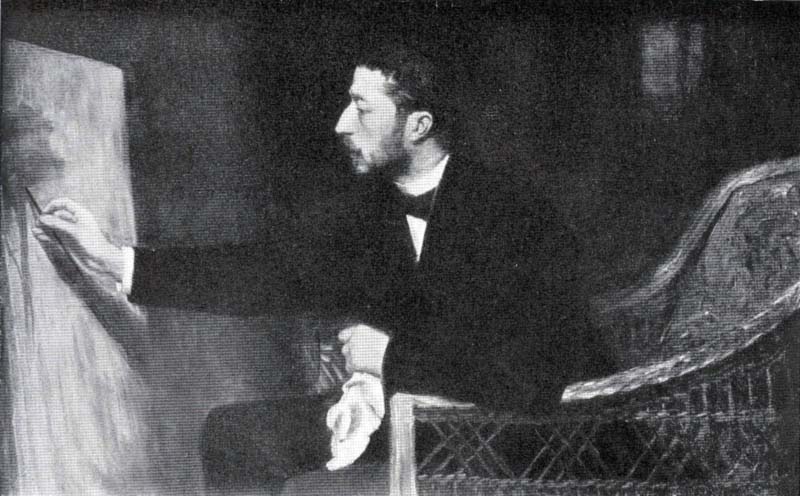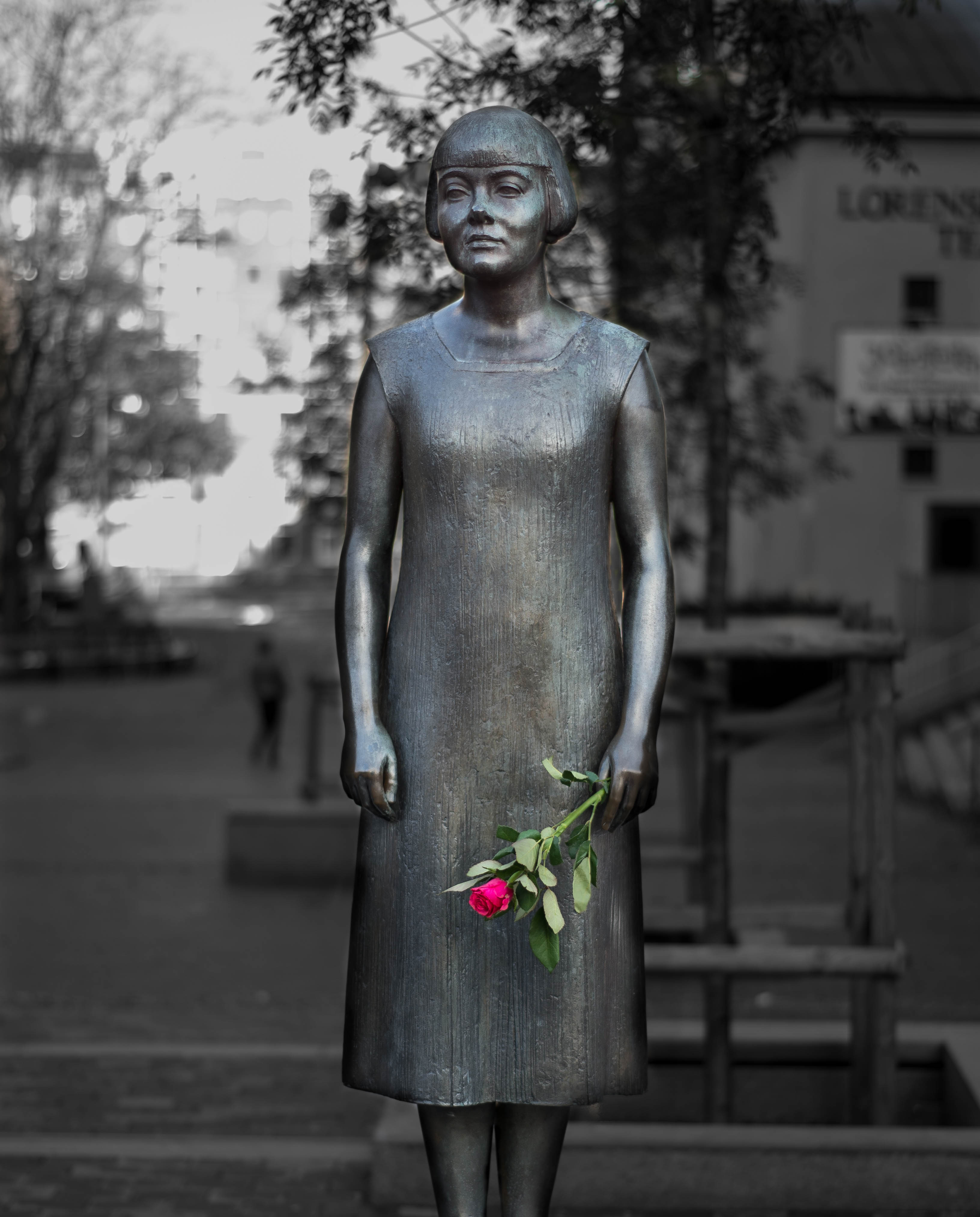|
Ofvandahls
Ofvandahls is the oldest still operating café and '' konditori'' in Uppsala, Sweden, founded as ''Café Dahlia'' in 1878 by Erik Ofvandahl (1848–1949). It still occupies the original suite of rooms in a (now) listed 19th century building at the intersection of Sysslomansgatan and Sankt Olofsgatan, in the historical Fjärdingen inner city district. Ofvandahls held the distinction of Purveyor to the Swedish Royal Court for a long time and the café remained in the Ofvandahl family, being run by his daughters Ragnhild and Anna until 1971. Specialities Linnébakelsen, a turquoise medallion with Carl von Linné's profile in marzipan, is one of the confectionery's most famous creations. The patisserie also serves sandwiches and simple lunches and sells coffee, cakes, bread and confectionery to take away. Literary associations Erik Ofvandahl was originally from the village of Ovandal near Borlänge. He took the name of his village as his surname in 1901, renaming the café ''Ofvand ... [...More Info...] [...Related Items...] OR: [Wikipedia] [Google] [Baidu] |
Ofvandahls Kafe
Ofvandahls is the oldest still operating café and '' konditori'' in Uppsala, Sweden, founded as ''Café Dahlia'' in 1878 by Erik Ofvandahl (1848–1949). It still occupies the original suite of rooms in a (now) listed 19th century building at the intersection of Sysslomansgatan and Sankt Olofsgatan, in the historical Fjärdingen inner city district. Ofvandahls held the distinction of Purveyor to the Swedish Royal Court for a long time and the café remained in the Ofvandahl family, being run by his daughters Ragnhild and Anna until 1971. Specialities Linnébakelsen, a turquoise medallion with Carl von Linné's profile in marzipan, is one of the confectionery's most famous creations. The patisserie also serves sandwiches and simple lunches and sells coffee, cakes, bread and confectionery to take away. Literary associations Erik Ofvandahl was originally from the village of Ovandal near Borlänge. He took the name of his village as his surname in 1901, renaming the café ''Ofvand ... [...More Info...] [...Related Items...] OR: [Wikipedia] [Google] [Baidu] |
Ett Litet Rött Paket
Ett litet rött paket is a Christmas song with lyrics and music by Owe Thörnqvist. Owe Thörnqvist recorded the song in 1957, and it became a 1963 hit when Sven-Ingvars recorded it. The song lyrics describe Owe Thörnqvist's hometown Uppsala, mentioning the Ofvandahls cafe and patisserie. Owe Thörnqvist and Sven-Ingvars sang different lyrics. Owe Thörnqvist sang ''När ljusen tändas i december månad'' ("When the candles are lit in the month of December") while Sven-Ingvars originally sang ''När ljusen tändas i februari månad.'' ("When the candles are lit in the month of February") In 2008 Lasse Stefanz recorded the song on the album '' Svängjul''. at Svensk mediedatabas
Svensk medied ...
[...More Info...] [...Related Items...] OR: [Wikipedia] [Google] [Baidu] |
Fjärdingen
Fjärdingen is a neighbourhood in the inner city of Uppsala, Sweden, situated on the western banks of the river Fyris. It has been the ecclesiastical centre of Sweden since the 13th century and contains many of the historical sights and landmarks of Uppsala, notably Uppsala Cathedral on the ''Domberget'' hill, with the Archbishop's residence and Church of Sweden offices, as well as the historical university district of Sweden's oldest university, Uppsala University. Notable university buildings in the area include University Hall, Gustavianum and Carolina Rediviva, as well as most of the student nation buildings. To the south, Uppsala Castle, the University Hospital and the Stadsträdgården city park form the boundary of the historical inner city. Boundaries Fjärdingen's natural border to the north-east is the River Fyris; to the south-east the neighbourhood is limited by Sjukhusvägen and the southern end of the city park, to the south-west by Dag Hammarskjölds väg and K ... [...More Info...] [...Related Items...] OR: [Wikipedia] [Google] [Baidu] |
Hjalmar Bergman
Hjalmar Fredrik Elgérus Bergman (19 September 1883 in Örebro, Sweden – 1 January 1931 in Berlin, Germany) was a Swedish writer and playwright. Biography The son of a banker in Örebro, Bergman briefly studied philosophy at Uppsala University but soon broke off his studies and took up the life of a free writer. He married Stina Lindberg, the daughter of actor and stage producer August Lindberg and Augusta Lindberg, and sister of Per Lindberg. Up to his father's death in 1915 Bergman was heavily sponsored by the family patriarch; after the old man died from a stroke it turned out that the family business had become highly indebted and Bergman was forced to start making money out of his writing and court readers in a more outgoing and more entertaining manner. He rose to the challenge and in the following ten years reached the peak of his work. Much of his output takes place in a small town in mid-Sweden, which is growing into a parallel universe in a Balzacian manner. The ... [...More Info...] [...Related Items...] OR: [Wikipedia] [Google] [Baidu] |
Ulf Peder Olrog
Ulf Peder Olrog (27 February 1919 – 13 February 1972) was a Swedish folklorist, lecturer, composer, songwriter, and radio personality. He was born in Stockholm to Thorvald Olrog and Hervor Jeanna Amalia Andrén. He studied at the University of Uppsala, and later (1952–1959) lectured in folkloristic at this university. He was assigned with Sveriges Radio from 1964, from 1971 as program director of the entertainment department. Olrog became a recognized composer and lyricist of numerous songs in Swedish. His songs also appeared in several feature films in the 1950s and 60s. References 1919 births 1972 deaths Uppsala University alumni Academic staff of Uppsala University Musicians from Stockholm {{Sweden-bio-stub ... [...More Info...] [...Related Items...] OR: [Wikipedia] [Google] [Baidu] |
Owe Thörnqvist
Owe Thörnqvist (born 12 March 1929 in Uppsala) is a Swedish singer-songwriter and revue artist. Since the 1960s he has lived in Spain and Florida in the winter for health reasons, and in Sweden in the summers. He has also made regular concert tours in Sweden. In 1953, Thörnqvist produced his first revue in Uppsala, and in 1955 his first record was released. His musical style includes rock, ballroom rumba and calypso, and he has also written pastiches of American popular music; his texts are characterised by word play and humour. Thörnqvist was one of the first people to do stand-up comedy in Sweden, in venues such as Hamburger Börs and Berns in Stockholm in the 1950s. He has worked together with artists such as Povel Ramel (in the revue ''I hatt och strumpa'' in 1961–62), Anita Lindblom, Lill Lindfors, and Eva Rydberg. In 1963, Thörnqvist provided guest vocals and performed the song "Wilma" on the ''Flintstones'' episode "The Swedish Visitors". Thörnqvist wrote songs fo ... [...More Info...] [...Related Items...] OR: [Wikipedia] [Google] [Baidu] |
Prince Eugen, Duke Of Närke
Prince Eugen Napoleon Nicolaus of Sweden and Norway, Duke of Närke (1 August 1865 – 17 August 1947) was a Swedish painter, art collector, and patron of artists. Background Prince Eugen was born at Drottningholm Palace as the fourth and youngest son of Prince Oscar, Duke of Östergötland. His mother was Sophia of Nassau. The newborn prince was granted the title of Duke of Närke. Upon his father's accession to the thrones of Sweden and Norway as King Oscar II, the Duke of Närke became fourth in line to the throne. Showing early artistic promise, he studied in Paris, and went on to become one of Sweden's most prominent landscape painters. Throughout his life Prince Eugen was a supporter of fellow artists, and also involved in many cultural organisations and committees. A homosexual bachelor, he bequeathed his villa Waldemarsudde at Djurgården in Stockholm, and its collections, to the nation. It is now one of Sweden's most popular museums. Norway The Duke of Närke ... [...More Info...] [...Related Items...] OR: [Wikipedia] [Google] [Baidu] |
Karin Boye
Karin Maria Boye (; 26 October 1900 – 24 April 1941) was a Swedish poet and novelist. In Sweden she is acclaimed as a poet, but internationally she is best known for the dystopian science fiction novel '' Kallocain'' (1940). Career Boye was born in Gothenburg (Göteborg), Sweden and moved with her family to Stockholm in 1909. In Stockholm, she studied at the ''Åhlinska skolan'' until 1920. She studied at Uppsala University from 1921 to 1926 and debuted in 1922 with a collection of poems, "Clouds" (Swedish: ). During her time in Uppsala and until 1930, Boye was a member of the Swedish Clarté League, a socialist group that was strongly antifascist. She was also a member of the women's organization Nya Idun. In 1931, Boye, together with Erik Mesterton and Josef Riwkin, founded the poetry magazine ''Spektrum'', introducing T. S. Eliot and the Surrealists to Swedish readers. She translated many of Eliot's works into Swedish; she and Mesterton translated "The Waste Land" ... [...More Info...] [...Related Items...] OR: [Wikipedia] [Google] [Baidu] |
Gustaf Fröding
Gustaf Fröding (; 22 August 1860 – 8 February 1911) was a Swedish poet and writer, born in Alster outside Karlstad in Värmland. The family moved to Kristinehamn in the year 1867. He later studied at Uppsala University and worked as a journalist in Karlstad.''Gustaf Fröding, Swedish Lyric Poet'' by , (Cedar Falls, IA: The North American Review, 1916). Vol. 204, No. 733 (December), pp. 897-908. Poetry His poetry combines formal virtuosity with a sympathy for the ordinary, the neglected and the down-trodden, sometimes written in his own regional ...[...More Info...] [...Related Items...] OR: [Wikipedia] [Google] [Baidu] |
Borlänge
Borlänge is a locality in Dalarna County, Sweden with 44,898 inhabitants as of 2020. It is the seat of the Borlänge Municipality with a total population of 51,604 inhabitants as of 2017. History Originally Borlänge was the name of a tiny village, and the first historical information about it is from 1390. The village was insignificant up until about 1870. In 1872 the construction of ''Domnarfvets Jernverk'', the ironworks of neighbouring village Domnarvet started. In 1875 a railway between Falun and Ludvika, via Borlänge was inaugurated. Thanks to its railway station the village of Borlänge became highly important in servicing the ironworks. In 1898, Borlänge was granted privileges by the national Swedish government as a market town (Swedish: ''köping'') with about 1,300 inhabitants, but still today it belongs to the Church of Sweden's regionally historically dominant parish of Stora Tuna, centered on a large medieval church by that name (meaning ''great enclosed f ... [...More Info...] [...Related Items...] OR: [Wikipedia] [Google] [Baidu] |
Uppsala University
Uppsala University ( sv, Uppsala universitet) is a public university, public research university in Uppsala, Sweden. Founded in 1477, it is the List of universities in Sweden, oldest university in Sweden and the Nordic countries still in operation. The university rose to significance during the rise of Swedish Empire, Sweden as a great power at the end of the 16th century and was then given a relative financial stability with a large donation from King Gustavus Adolphus of Sweden, Gustavus Adolphus in the early 17th century. Uppsala also has an important historical place in Swedish national culture, identity and for the Swedish establishment: in historiography, literature, politics, and music. Many aspects of Swedish academic culture in general, such as the white student cap, originated in Uppsala. It shares some peculiarities, such as the student nation system, with Lund University and the University of Helsinki. Uppsala belongs to the Coimbra Group of European universities a ... [...More Info...] [...Related Items...] OR: [Wikipedia] [Google] [Baidu] |






.jpg)
